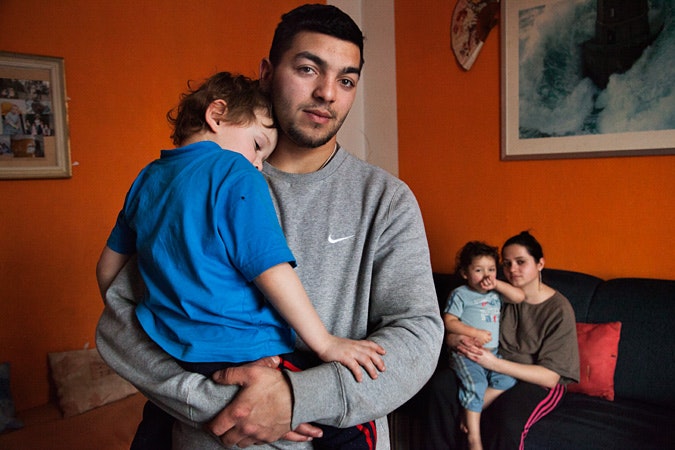Failing Another Generation: Czech Roma Policies Back in the Spotlight
By Will Cohen

Five years ago, the European Court of Human Rights issued its landmark judgment in the case of D.H. and Others v. Czech Republic. The judgment demanded an end to the longstanding practice in the Czech Republic of segregating Roma schoolchildren into so-called "practical schools"—dead-end institutions that actually close the doors of opportunity.
But the past five years have seen little change. Roma children are still shunted into substandard classes. This week, the Committee of Ministers of the Council of Europe — the body charged with making sure the judgments of the European Court of Human Rights actually have teeth — will turn its attention to the Czech Republic. It will take up—not for the first time—the question of Roma education. If anyone on the committee doubts the stakes, they would do well to consider Julius Mika's story.
Julius was one of the 18 who brought the D.H. case to the European Court. As a child, Julius attended a standard school. Then a bout with pneumonia forced him to miss several weeks of classes. When he recovered, instead of getting support from teachers to catch up, he was moved into a practical school and he has carried the burden of the experience ever since.
Julius is now out of school and working to provide for two sons of his own. When we interviewed him earlier this year as part of a project on the unfinished story of the D.H. case. he continued to call for better treatment of Roma kids in Czech schools—in the hope that his own children wouldn't suffer the same fate he did.
I wouldn’t wish the experience on my worst enemy. The system left me without an education and without even a trade.
If I were better educated I would have a better job and consequently a better life—not just me but my children as well. I would go back to school but now I have children and I have to work to provide for them. So, I make a living cutting trees for the city.
I was happy that the case ended in our favor—to hear that the court, someone with greater power, recognized that the school system was wrong and that Roma children deserve equal standards of education.
But nothing has really changed. In the system now, they say we have a choice. But if parents refuse to send their children to the practical school and the child returns to the regular school, the teachers make the experience horrible for them. Most often, children will end up at the practical school anyway.
If I could choose, I would strive to be something more. I would be a lawyer. I would practice law to stop what is happening to Roma children.
I don’t want my children to be judged the way I was judged.
This interview is excerpted from Failing Another Generation, a photo essay about the D.H. applicants. More photographs from the project are also available.
Until March 2014, Will Cohen was a senior communications officer with the Open Society Justice Initiative.